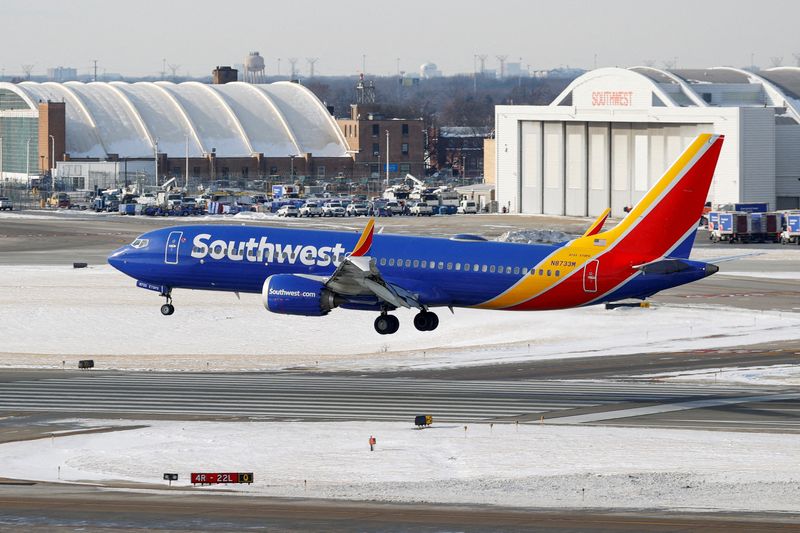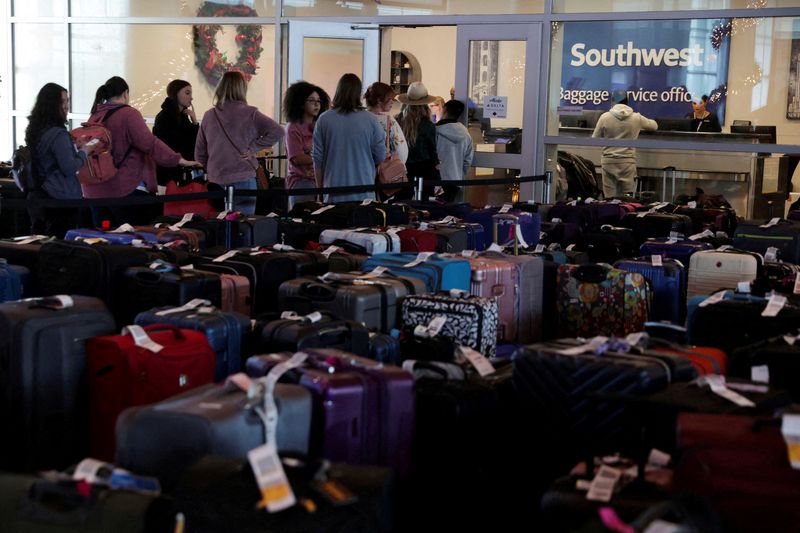By David Shepardson
WASHINGTON (Reuters) -The U.S. Department of Transportation (USDOT) said on Wednesday it is investigating whether Southwest Airlines (NYSE:LUV) engaged in "unrealistic scheduling of flights" in December when it was hit by a systems meltdown and canceled thousands of flights.
A "rigorous and comprehensive investigation into Southwest Airlines’ holiday debacle that stranded millions" is in its early stages, the department said in a statement.
Southwest canceled more than 16,000 flights in the week ending Dec. 29 after its crew scheduling software failed to handle staffing changes. Congress has hearings planned on the cancellations.
The investigation was previously announced but USDOT disclosed on Wednesday it is reviewing whether "Southwest executives engaged in unrealistic scheduling of flights which under federal law is considered an unfair and deceptive practice."
Southwest said it will "cooperate with any inquiry or request from government oversight or elected officials." The airline defended its scheduling saying its "holiday flight schedule was thoughtfully designed and offered to our customers with the backing of a solid plan to operate it, and with ample staffing."
The airline added "while working to recover, our systems and processes became stressed by multiple days of flight cancellations across 50 airports in the wake of an unprecedented storm."
Southwest is set to report earnings on Thursday and has warned the meltdown will result in a pre-tax hit of up to $825 million from lost revenue.
USDOT added it "will leverage the full extent of its investigative and enforcement power to ensure consumers are protected and this process will continue to evolve as the Department learns more."
USDOT has promised to take action if Southwest does not adequately reimburse customers and has forwarded thousands of complaints it received to the airline.
The department said this month it will seek higher penalties for airlines and others violating consumer protection rules and will hold airlines "accountable and deter future misconduct by seeking higher penalties that would not be viewed as simply a cost of doing business."

USDOT fines for airline consumer violations are often a fraction of potential penalties. Last year, Air Canada agreed to a $4.5 million settlement to resolve a USDOT investigation into refund delays.
USDOT initially sought $25.5 million; Air Canada got $2.5 million credited for passenger refunds and paid just $2 million in fines.
